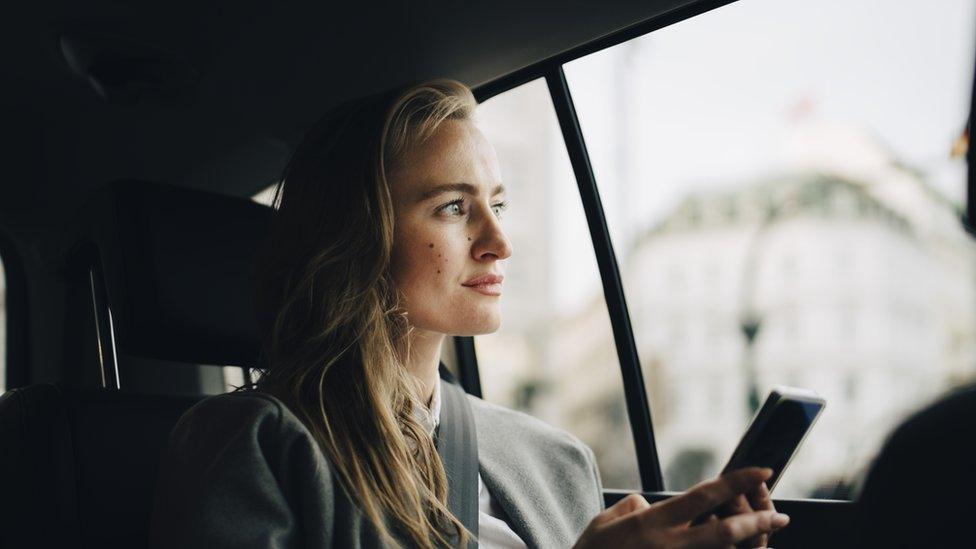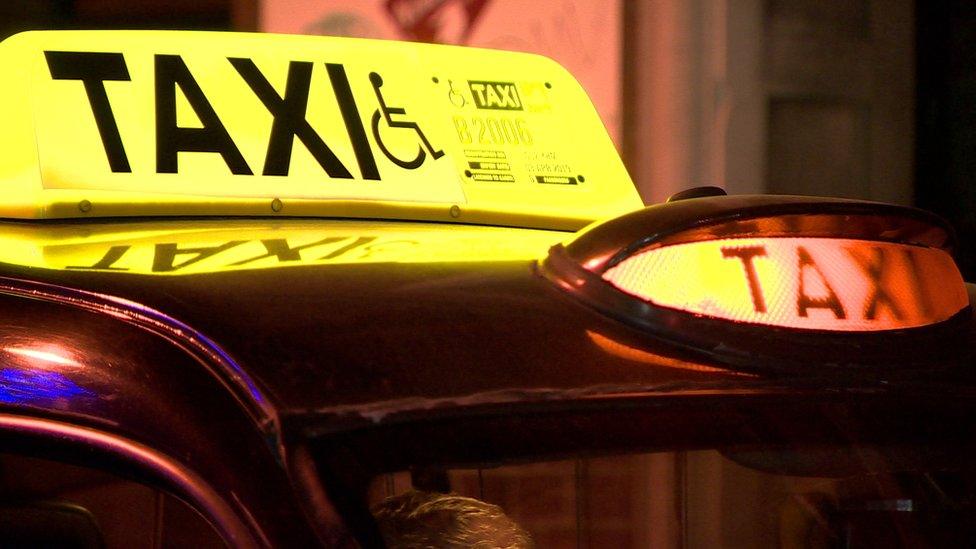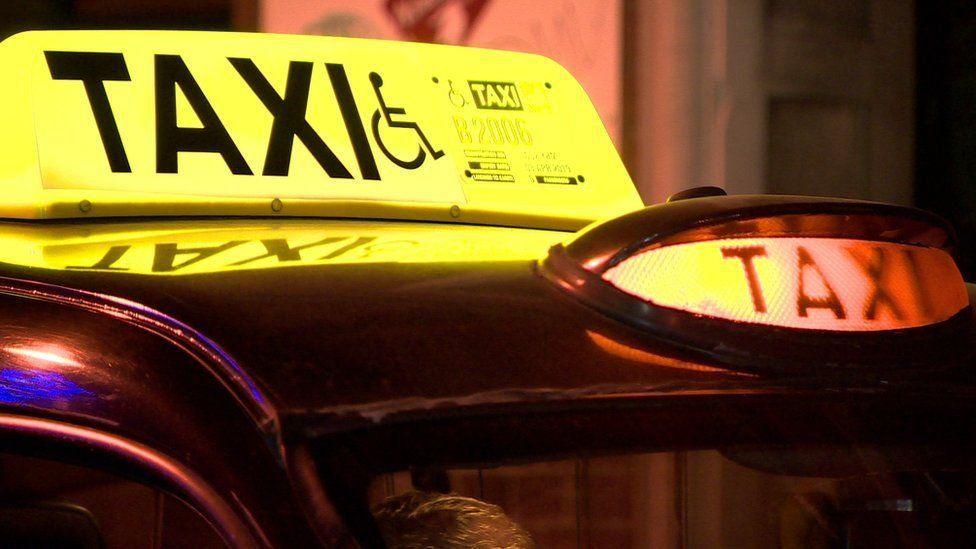Northern Ireland's maximum taxi fares to go up
- Published

The maximum prices that a taxi driver can charge are to rise across Northern Ireland.
The maximum fare will increase by 9.5% during the day and 19.5% at all other times
However drivers can still charge less than the maximum if they want.
The Department for Infrastructure (DfI) said "challenges about the availability of taxis, particularly in the evenings and at weekends" has led to concerns around public safety.
The DfI said this was a context which had led to the rise.
The taxi industry in Northern Ireland has been dealing with falling numbers of drivers in the last few years.
In 2014, there were more than 15,000 licensed taxi drivers while in June 2023 there were just 7,665 licensed taxi drivers, the lowest on record for 10 years.
The department put the price rise out to public consultation in August 2022 and had 790 responses, including from the Consumer Council, taxi drivers, larger taxi firms and members of the public.
It said the price increase was designed to "balance the needs of taxi customers, including vulnerable passengers who are more likely to use taxis on a daily basis, with those of drivers and operators who face rising fuel costs".

A taxi driver test was introduced in 2014
However, the department said it recognised the impact the current financial climate was having on the public.
In a statement the department said the measures had been brought in to "assist the taxi industry and support the wider economy, while trying to ensure an affordable means of transport".
The rise will come into force on 5 December 2023.
Colin Neill from Hospitality NI said he hoped the price rise would mean more drivers working at weekends.
"Nobody likes to pay more for a taxi but it's important fares rise," he said.
He said price rises were a positive step in terms of getting more drivers into the industry so that there would be more transport options for people who wanted to go out at evenings and weekends.
"We must incentivise more drivers to work weekends."
He added that he felt the taxi driver theory test was another barrier to people getting into the job.
He said that he also wanted to see more year round night buses.
Since 2 October, taxi drivers in Northern Ireland have had to show that they are registered to pay tax when renewing their licences.
The requirement was announced in 2021 and has been in place in England and Wales since April 2022.

How much do taxis cost in Northern Ireland?
There are four pricing rates for taxis - these are defined by the operating time and involve an initial charge, followed by approximate charges for the first mile and then every additional mile travelled.
After the new changes, the rates will be:
Rate 1 (Monday to Friday, 06:00 to 20:00): Initial charge of £3.20; approximate charge for first mile of £4.20 and then £1.86 charged for all additional miles
Rate 2 (Monday to Thursday, 20:00 to 06:00): Initial charge of £4.00; approximate charge for first mile of £5.10 and then £2.03 charged for all additional miles
Rate 3 (Friday 20:00 - Monday 06:00 and specified days): Initial charge of £5.00; approximate charge for first mile of £6.10 and then £2.03 charged for all additional miles
For Christmas and New Year rates see the NI Direct website, external
Related topics
- Published2 October 2023
